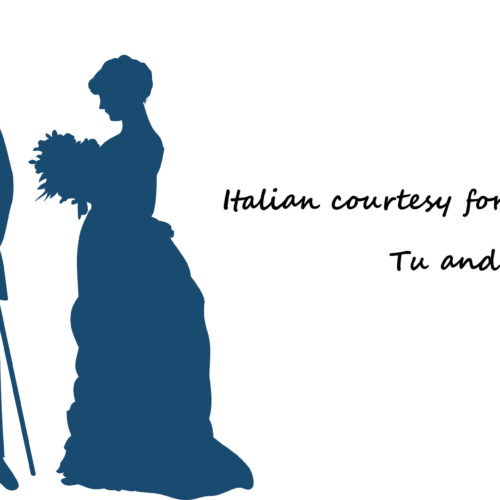Introduction : Learning Italian
Every language is made up of words
Obvious statement that is, I know. But if we consider numbers, nouns and a few adjectives (cutting out verbs/pronouns and all the rest as not essential in the beginning) we can look at the whole thing from an unusual point of view I’d like to get deeper into.
Imagine someone coming from abroad entering a shop in your town and asking the clerk “bread, oil, apples, how cost?” and being able to understand “twelve seventy-five” as a reply. Wouldn’t this kind of conversation work? Far from being articulate or specific, this guy would be able to shop for food anyway, without needing anything else than a few right words.
Words are the skeleton a language is built around, once we know them we can grow in confidence and refine our knowledge with simple phrase patterns. Practice is the key anyway, and speaking things out loud is vital. Once you can speak the words you need, you have a lot less to think about while building a sentence and can put all your energies into choosing a grid to place words on, selecting a verb mood and so on.
While approaching a new language we usually set a sort of a standard with ourselves, based on our ability in our own native language. This way we tend to get an expectant attitude, but nothing can be perfect from scratch. We’re so good in our language and all of a sudden find ourselves babbling nonsense out, unable to match sounds and structure, words and their meaning.
We should change that: we master our own language and didn’t certainly reach mastership starting with books and rules. Progressive approximation took us there, tons of daily mistakes nobody blamed us for and little improvements everybody around would flatter us for. Neither a whole beloving world is around all day to welcome every little forward step of ours anymore, nor we usually are so great at considering mistakes as a necessary part of learning. Therefore a proper attitude seems to me the first vital tool when approaching a new language: don’t blame your mistakes, praise your own progresses and start learning words!
Which words, and how?
Start with nouns of things you have around all the time and talk to yourself like “I’ll drink un caffè now”, “let me andare in salotto for a while”, “tempo to cook again”, “adesso is time for una pausa” and so on. You’ll soon grow accustomed to it and will notice that English and Italian share several sentence structures. Go for objects, adjectives and infinitive verbs and choose those you use everyday first, the ones you find easiest first. A dictionary is all you need at this stage and this kind of practice will store words in your brain very efficiently: they’ll pretty readily come out whenever needed and all these uncommon and beautiful Italian sounds will soon become familiar. Also, the more you speak and the more easily you can understand someone else speaking, so stick on it!
After a while you can choose a situation you like (or one you think it’ll will be important for you to get ready for) and build up a word set for it. Nouns, adjectives and verbs’ infinitive mood to start with.
As time goes by, you can start understanding how the verbs system works but just after you have a good amount of words at hand. Regular verbs are not hard to learn and a few things can be simplified so don’t worry about verbs too much: there’s always time for modals, while basic words are always needed!
Last note, on writing
I wouldn’t bother writing in the beginning; writing in my opinion comes after speaking: once you can speak a sentence in Italian you’ll mostly be able to write it down because all the work is actually done already. Misspelling is hard in Italian: pronunciation and spelling go very much together, unlike they do in English. I’d just write things down in order to fix something new on paper and carry it in my pocket, not as an exercise itself.
Hopefully you’ll find these notes useful.
We’ll start with the alphabet, a few nouns and basic regular verbs next time, please send me any request you might have and buono studio until then!
By Carlo Pescatori



























